Chickens are, as I like to put it, the gateway animal. You start out with chickens and then all a sudden you have your eye on a few goals, a couple pigs and maybe even a mini Dexter cow. I have had chickens several times through out my life and always loved having them around. Even years ago when I got my first chickens I made a lot of success very quickly and the entire process was a lot of fun.
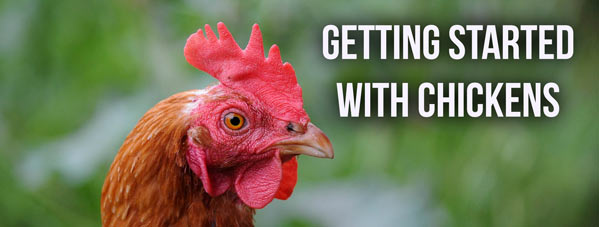
The nice thing about keeping chickens is they are quite easy to take care of, requires a few minutes a day to tend, in a pinch can be left for a long weekend and if you travel you can teach someone to take care of them quickly. Of course as with any animal, owning chickens you need to take it seriously and make sure you understand that their welfare is your responsibility, so make sure to consider it carefully.
Know Your Local Laws
The first thing you need to do before you do anything is make sure that keeping chickens is allowed. You’ll need to check with the local authorities, see if you have any rules in your home owners association or deed restrictions and then also consider your neighbors.
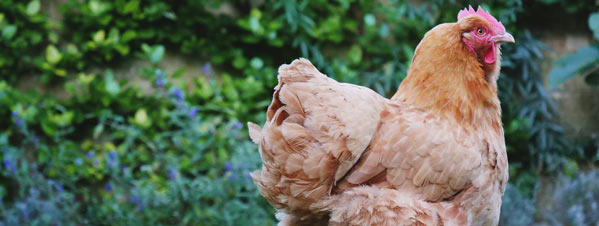 In my city I’m allowed to have up to 50 birds per acre, the coop must be offset from any property line by 15 feet and obtain a permit for $10 a year. Your city or town may be different, so make sure you do your homework!
In my city I’m allowed to have up to 50 birds per acre, the coop must be offset from any property line by 15 feet and obtain a permit for $10 a year. Your city or town may be different, so make sure you do your homework!
Learn All You Can
Obviously if you’re reading this post, you want to learn about starting a chicken farm and it may even be because you’re thinking about getting chickens of your own (go for it!). Use this post as a jumping off point to learn as much as you can about the various aspects of chickens. You’re going to make mistakes and that is okay, we are learning, so don’t beat yourself up if you’re doing your best to care for these animals.
Get Setup Ahead Of Time
Once you’ve researched your local laws you want to get setup with some basic infrastructure. You’re going to need a few things so you can be ready for your chickens. You should consider the following
Brooder
If you’re going to raise chickens from freshly hatched babies (chicks) you will need what is called a brooder. A brooder is like a nursery for the chicks where we protect them a little bit more, give them some added heat and let them grow a bit before you let them out into the real world. I typically do this in a large Rubbermaid tub with a heat lamp and some bedding.
We have a whole post on how to set up a brooder and raise chicks. Below is a video I have of some baby quail I raised a few years ago from eggs. Their setup was a bit simpler, but you get the idea.
Build A Coop
A coop is just what we call the house we keep our chickens in at night. During the day we will let them free range (go were ever they want) or let them into a run (a fenced area that provides some protection). The coop needs to be about 2 square feet for each chicken you have. Much more than 2-3 feet per bird assuming they have more room to range during the day doesn’t do much because they all like to pile on a roost and cuddle up with each other anyway.
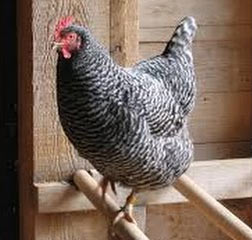 A roost is just a bar that chickens like to sit on, usually about a foot or so off the floor of the coop or ground. I’ve had chickens that all piled onto a single bar leaving several empty and then I’ve had others that didn’t use them at all. I usually add them because it seems like most chickens like to roost because it makes them feel a little safer. The top most roost is often taken up by the alpha hen and the rooster if you have one, but some flocks don’t get too tied up in pecking order.
A roost is just a bar that chickens like to sit on, usually about a foot or so off the floor of the coop or ground. I’ve had chickens that all piled onto a single bar leaving several empty and then I’ve had others that didn’t use them at all. I usually add them because it seems like most chickens like to roost because it makes them feel a little safer. The top most roost is often taken up by the alpha hen and the rooster if you have one, but some flocks don’t get too tied up in pecking order.
You want to make sure that there is at least some ventilation, but make sure it hardware cloth over it so predators can’t get in. The rule of thumb is around 1 square foot of ventilation per 10 square feet of coop.
The last parts of a coop are your nesting boxes for the chickens to lay their eggs in (usually one box per 3-4 birds) and some sort of bedding to catch droppings from. Chickens put out a lot of droppings and they tend to concentrate under the roost bars. However you plan to handle droppings, make it bomb proof because it can get messy quickly and if you build your coop to easily clean out, you can make your life a lot easier. More on coops coming soon.
Chicken Tractors And Chicken Runs
Many people who want to get into raising chickens want to try a mobile chicken tractor, which is basically a coop with no bottom that you move to fresh grass every few days. I’ve done both a fixed coop and chicken tractors and I think chicken tractors are my favorite because it cuts down on the cleaning (no floors, the chickens just poop on the grass) and it reduces the amount of feed I need to buy.
Here is my old chicken tractor:
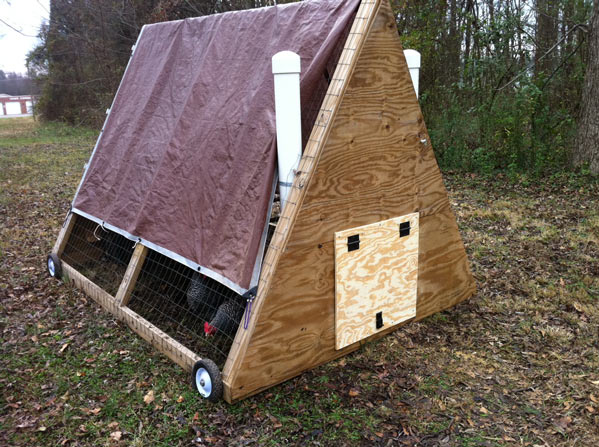
There are a few things you need to consider if you decide to go the chicken tractor. Whatever coop you design it should be able to be moved easily by the smallest person in your household, it makes it difficult if only some of the people can actually move it each day.
Finally make sure you have enough room, if you have more than a few chickens you’ll need to move that coop most days so that the chickens do remove all the vegetation in that one spot to the point that it can’t bounce back. You want the grass to get roughed up a bit, but no more. This will let the grass bounce back and grow stronger. Having enough space is easier in the summer months because things grow so quickly, but in the winter you may find that a spot where the chickens were takes 30-60 days to heal.
Life And Death On The Farmstead
With any animals it’s great to have animals around your yard, it can bring a lot of good energy, fun and happiness. The other side of the coin is that with life comes the end of if. Sometimes chickens get sick, sometimes a predator circumvents our fences, or they might just grow old and die.
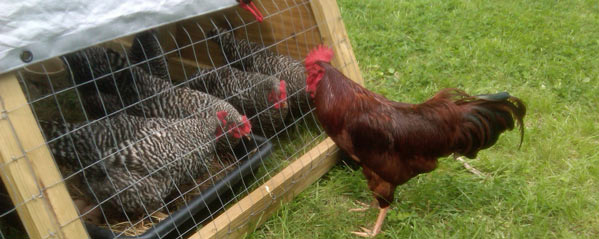
For good caretakers these days are few and far between, but it is a reality of this lifestyle. When I bought my first chicks I ended up with several roosters despite me trying to avoid it. As they grew they began to struggle for dominance as the alpha rooster. It was at that point I had tried giving them away, but couldn’t find anyone that would take them even for free. As they fought I knew the only outcome was that there would be only one alpha and the rest would suffer injuries or death from the skirmishes that were taking place.
It was then I realized they would end up being pecked to death by the alpha rooster. I wasn’t comfortable with a prolonged and painful death, so I made the decision to process them for meat. It was a difficult and somber affair as I did the deed, and while I was resolved in my mind, it didn’t make it any easier as I placed them in the kill cone and nicked their artery with a knife.
Just understand that it’s mostly good, but there are a few bad days too.
Self Sufficiency
Not only is keeping chickens pretty easy and a lot of fun, but the eggs and potentially meat are a solid first step into self sufficiency. If you think about it, we grow a lot of things in out garden and while they are loaded with nutrients, vitamins and minerals, they are often very low in calories or protein. It’s great to eat healthy, but if we want to make our way to self sufficiency, we need to figure a way to cover our caloric and protein needs too and eggs help in that goal.
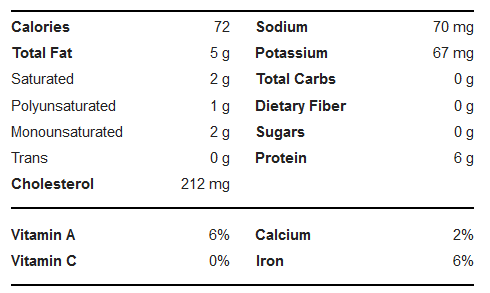 As you can see an egg has some good calories and a fair bit of protein and you get an egg per chicken each day in many cases. Compare that to a tomato which can take 90 days to grow and only has 22 calories.
As you can see an egg has some good calories and a fair bit of protein and you get an egg per chicken each day in many cases. Compare that to a tomato which can take 90 days to grow and only has 22 calories.
Having a few eggs a day for breakfast or a quiche for lunch or dinner is a great way to start making up some of the calories that we need, which means we don’t have to rely on the grocery store as much. Eggs can even be a way to make a few bucks to cover the cost of feed and if you ever need a chicken sitter, them keeping the eggs is often compensation enough.
Letting Chickens Work For You
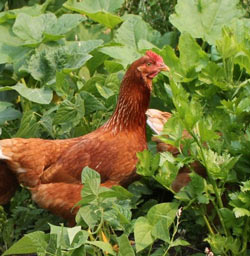 Not only are chickens a great source of food, but they can be helpful in reducing your work load. Chickens by their nature scratch at the dirt, root for bugs and grubs, and till up the first inch of soil. We can utilizing their natural tendencies to get things done in our gardens. Setting chickens loose on compost piles will be like letting a child loose in a candy shop. They’ll turn the compost, peck out any grubs and bugs (breaking the pest life cycle) and add their manure to the pile all in one fell swoop.
Not only are chickens a great source of food, but they can be helpful in reducing your work load. Chickens by their nature scratch at the dirt, root for bugs and grubs, and till up the first inch of soil. We can utilizing their natural tendencies to get things done in our gardens. Setting chickens loose on compost piles will be like letting a child loose in a candy shop. They’ll turn the compost, peck out any grubs and bugs (breaking the pest life cycle) and add their manure to the pile all in one fell swoop.
I’ll often move my chickens to my garden area before I begin to prep the garden for a new season. Since my garden area is fenced in for deer, I set them up there for a month and let them take everything to bare dirt. If there are any perennial plants or plants I want to keep, I’ll just fence them off so the chickens can get to them. After a few weeks the ground is often removed of weeds, bugs and a fair bit of manure has been scratched into the soil.
Chickens are a really great first step into bringing animals into the mix on your land and they have a lot of upsides. So if you are thinking about chickens, check out some of the other post here on the site and let us know in the comments what your plans are!
Your Turn!
- What seems like the biggest challenge for you when it comes to chickens?
- What are your chicken plans?
Are there any resources online you suggest for building your own moveable chicken coop?